Are you frustrated with a warranty claim that hasn't gone as smoothly as expected? You're not aloneâmany consumers find themselves in similar situations where their rights and expectations are not being met. In this article, we'll explore how to effectively draft a formal complaint letter that can help you navigate the complexities of warranty issues. Read on to discover tips and a handy template that will empower you to address your concerns confidently!

Clear Identification and Details of the Product
The formal complaint regarding a warranty claim necessitates clear identification and detailed information about the product in question, such as its model number, specifically for electronics like the Apple iPhone 13. The purchase date, ideally from a reputable retailer such as Best Buy, should be noted, along with any relevant receipt or invoice numbers--often found on purchase confirmations. Additional details including serial number, typically located on the device's original packaging, help establish authenticity. A description of the issues faced, such as battery malfunction or software glitches, underscore the necessity for warranty assistance, while any communication with customer service representatives, including dates and names, can illustrate attempts to seek resolution.
Description of the Issue and Warranty Reference
A formal complaint regarding warranty claims often arises from dissatisfaction with the service provided by companies, particularly in electronics, automotive, or appliance industries. Warranty claims typically pertain to defective products or subpar service regarding repair requests, often under standard warranty terms, which cover specific timeframes (such as one year from purchase) and conditions. For instance, if a smartphone presented continuous software issues despite numerous troubleshooting attempts, customers might reference their warranty number (such as XYZ-123456) and calibrate expectations based on the manufacturer's policy. This complaint could demand rectification (replacement or repair) and a timely response within specific periods (like 30 days), ensuring adherence to consumer rights regulations established in locales such as the European Union or the United States.
Attached Copies of Relevant Documents
Submitting a formal complaint regarding a warranty claim is crucial to ensure fair resolution and customer satisfaction. Relevant documents typically include the original purchase receipt, warranty policy details, any prior correspondence, and photographic evidence of the defective product. The original purchase receipt should include the date of purchase and retailer details, verifying eligibility under the warranty. Warranty policy documents outline the terms and conditions governing claims, specifying coverage duration and exclusions. Prior correspondence may detail previous attempts to resolve the issue, reflecting the timeline of the complaint. Photographic evidence provides clear visual proof of the defect, reinforcing the validity of the claim and supporting the customer's position. Together, these documents create a persuasive case for addressing unresolved warranty issues.
Specific Request for Resolution
A formal complaint regarding warranty claims involves specific details about the product, warranty terms, and desired resolution. A defective washing machine model WD-2020 purchased from Home Appliance Store on June 15, 2022, has consistently exhibited malfunctioning issues, particularly failing to complete wash cycles since September 2023. Warranty terms state coverage for repairs within two years of purchase. Request for a full refund or replacement is outlined in the complaint, alongside documentation of previous repair attempts recorded on September 20, 2023, and October 5, 2023. The situation underscores the need for prompt response and resolution from the retailer or manufacturer.
Contact Information and Preferred Communication Method
A formal complaint regarding a warranty claim typically includes essential elements such as detailed contact information and preferred communication methods to ensure effective resolution. Contact information consists of the full name of the claimant, mailing address, email address, and phone number. Clarity in communication channels is paramount; preferred methods could include email for swift written correspondence or phone calls for immediate discussions. Specifying these details not only clarifies how the claimant wishes to be contacted but also facilitates streamlined communication with the company involved, ensuring that all parties remain informed throughout the warranty claim process.
Letter Template For Formal Complaint Regarding Warranty Claim Samples
Letter template of formal complaint regarding unsatisfactory warranty service
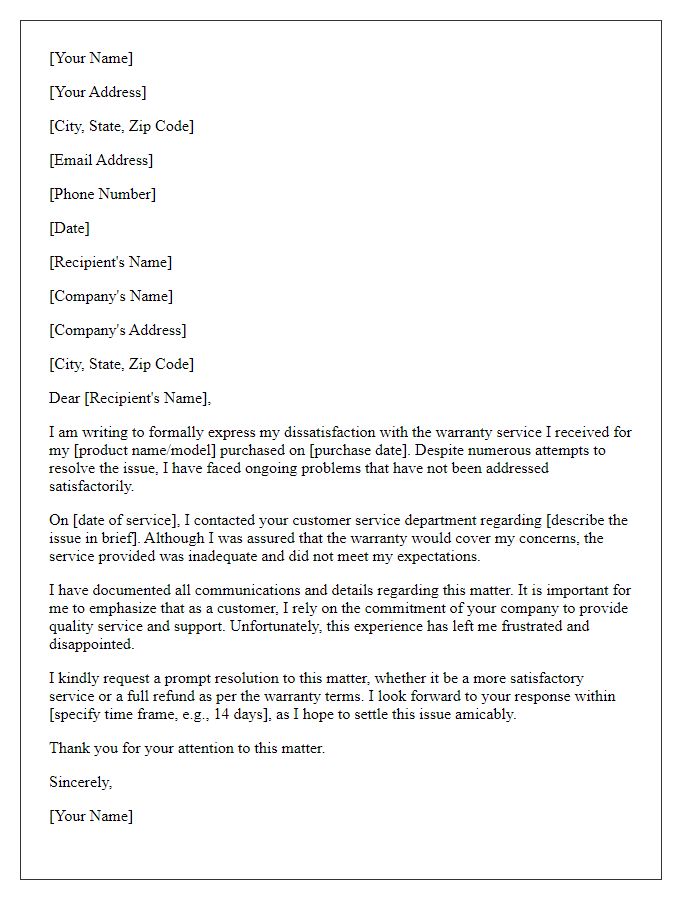

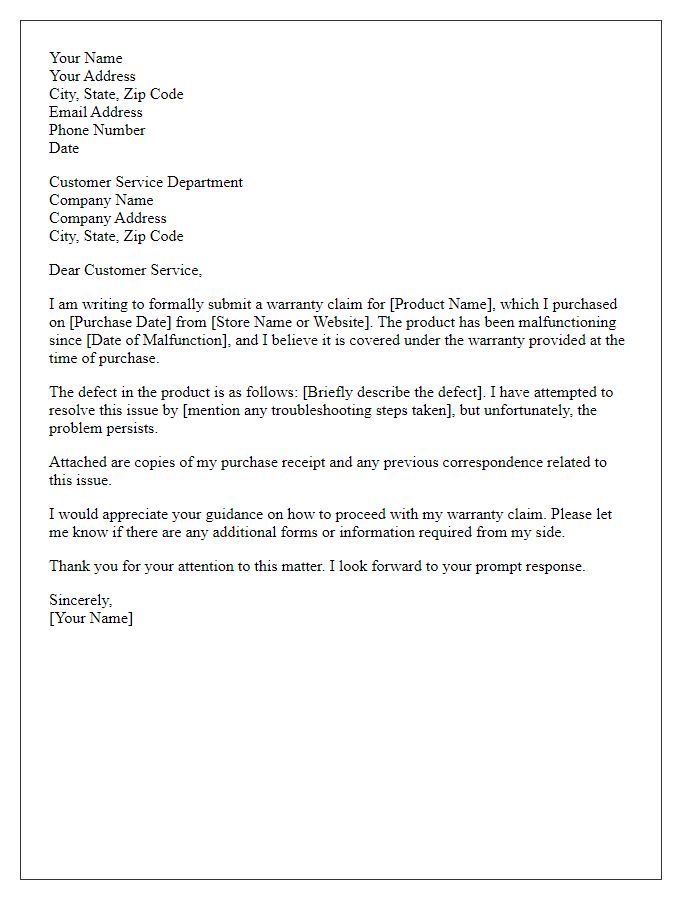
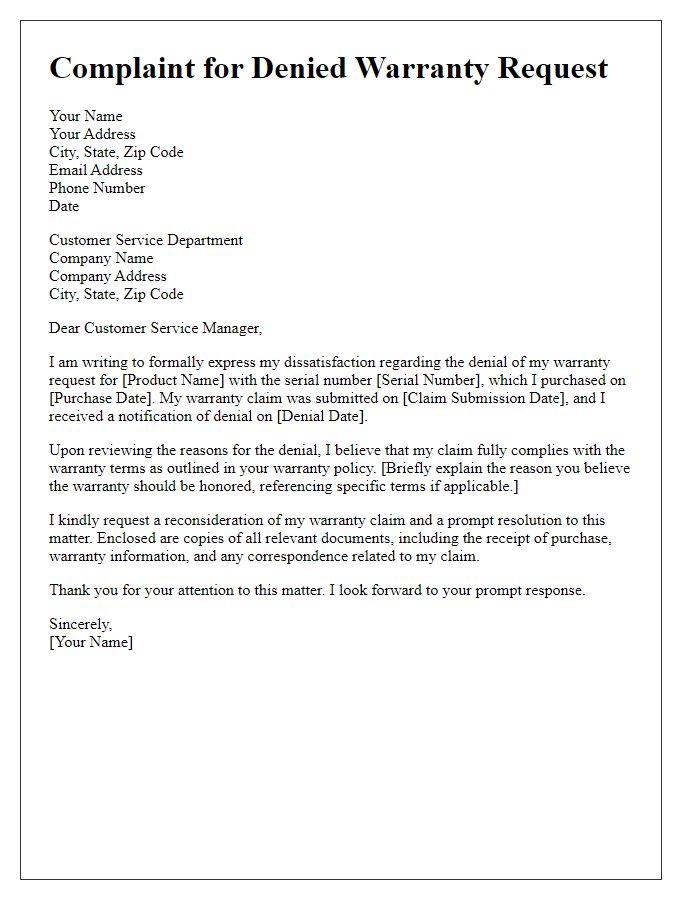
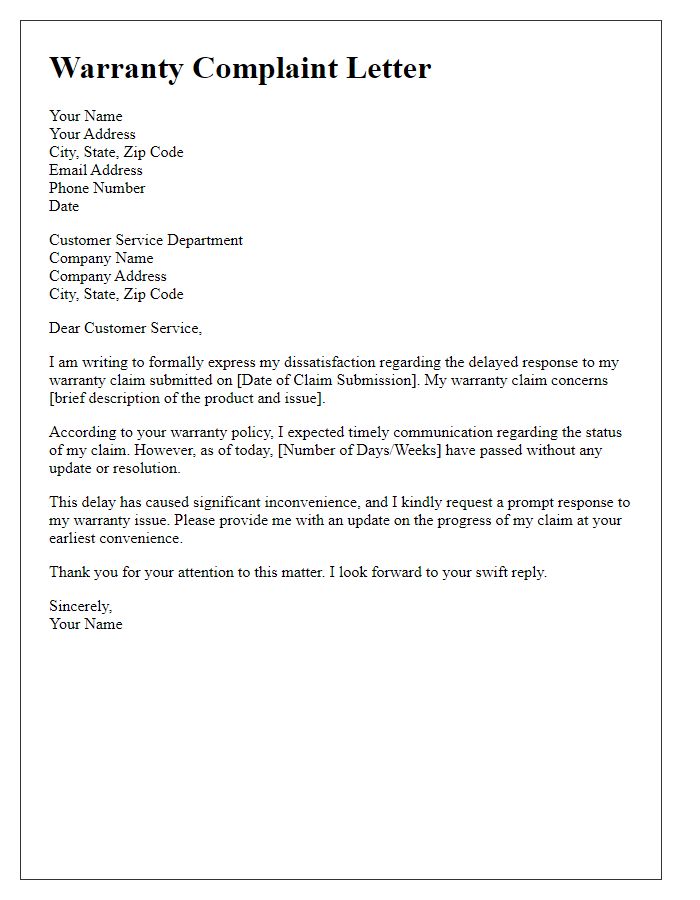
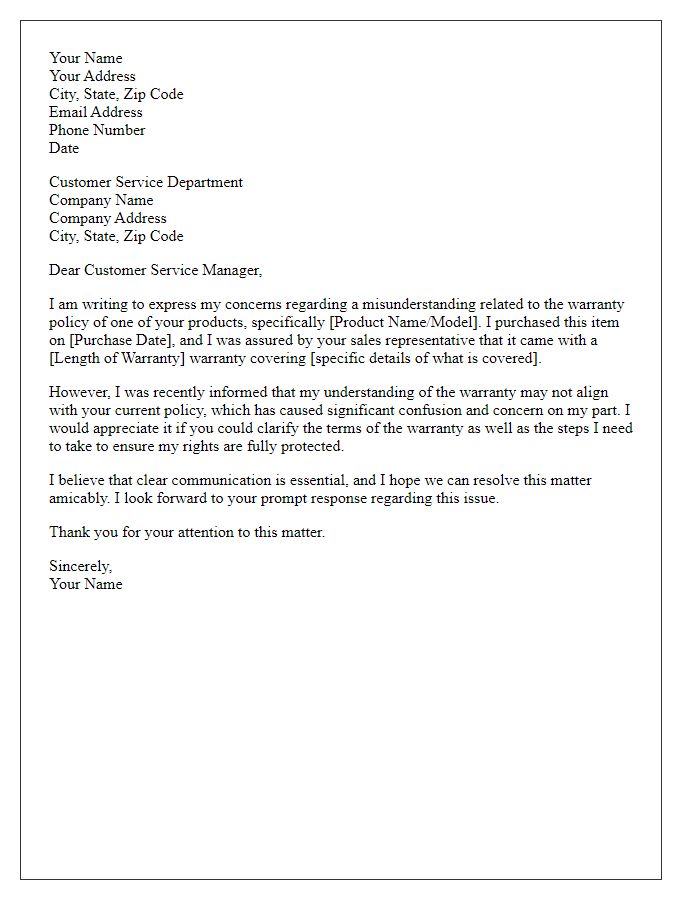
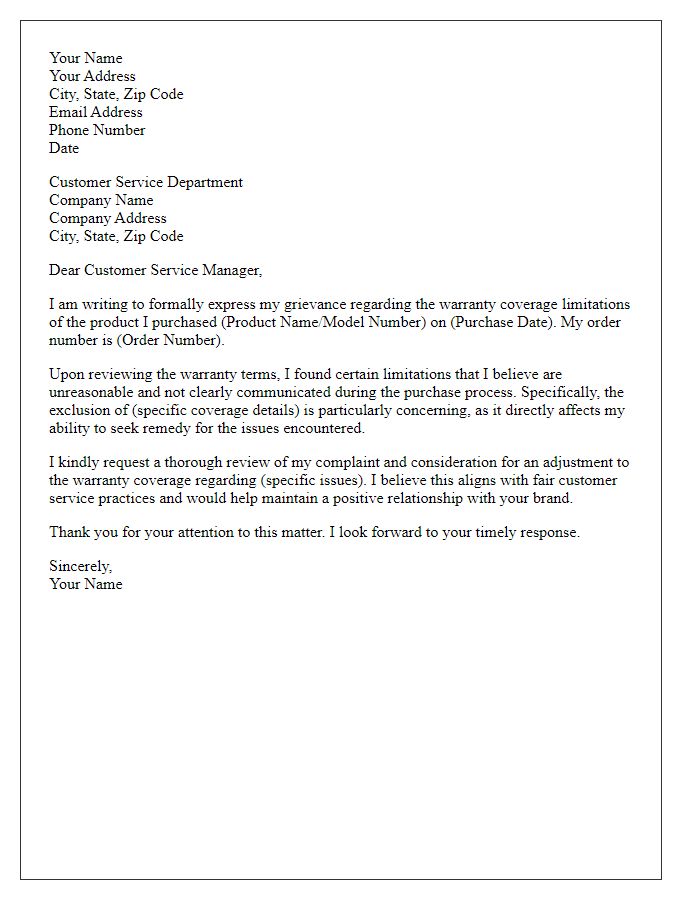
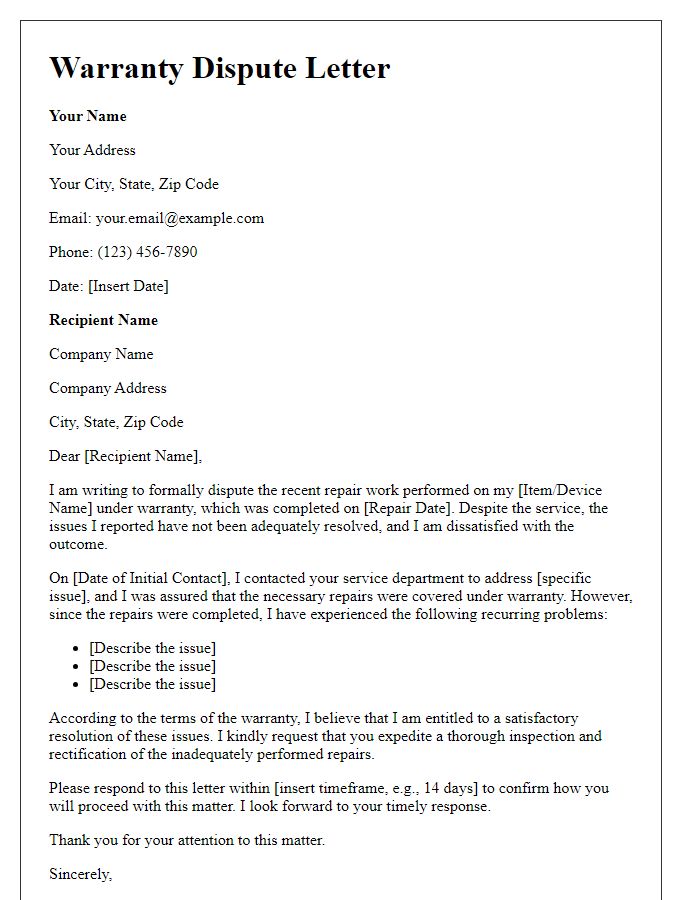
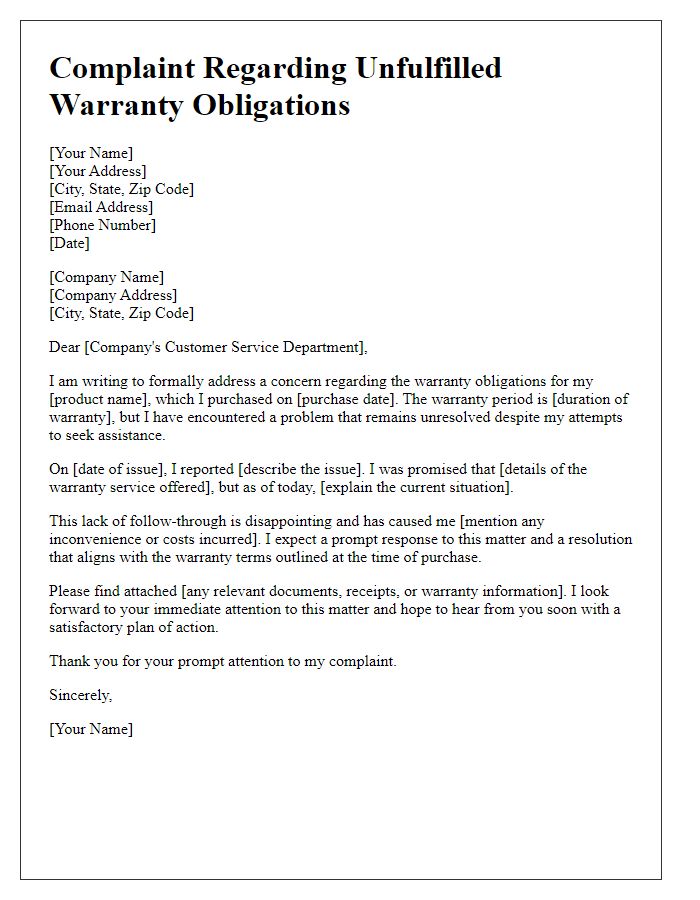
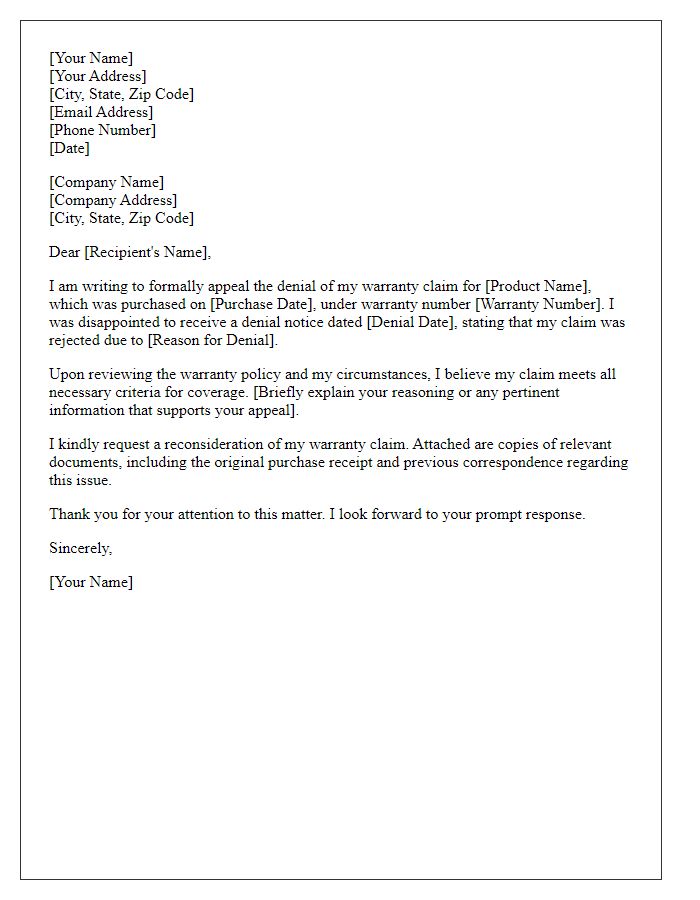
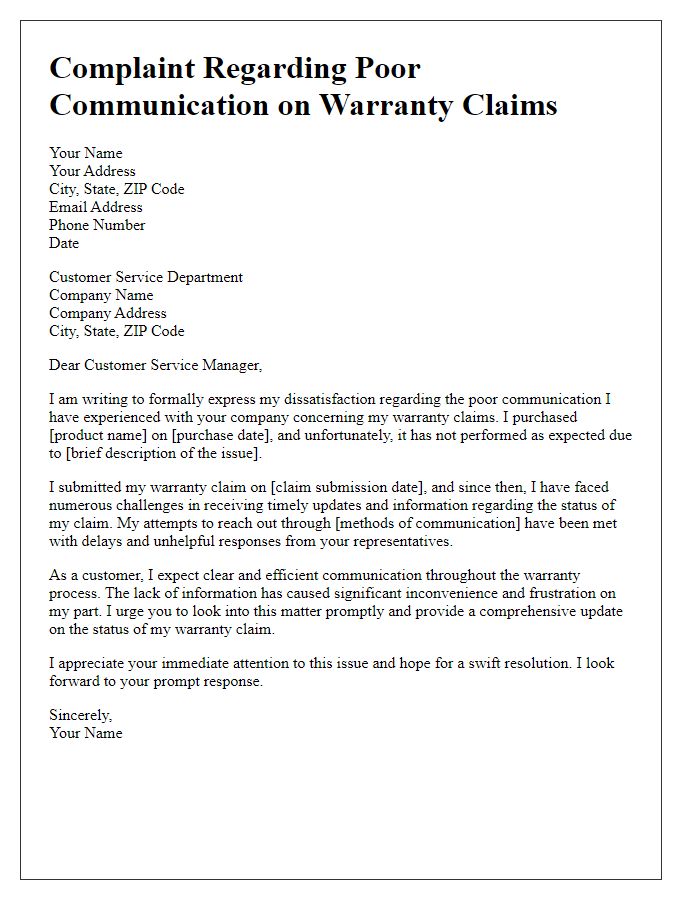

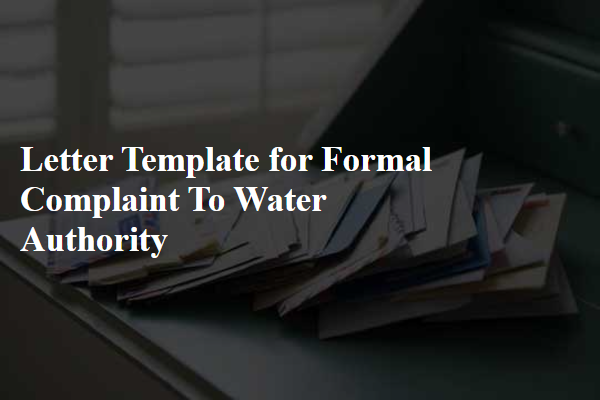
Comments